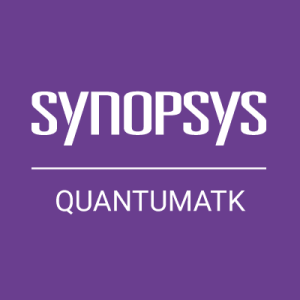Synopsys LmSym 2025.03
$ 160.00
Synopsys LmSym 2025.03 – Advanced Modeling & Simulation Software
Boost your semiconductor design workflow with Synopsys LmSym, the latest high-performance simulation solution optimized for modern engineering environments. This powerful tool delivers enhanced modeling accuracy, faster computational performance, and improved compatibility with next-generation Synopsys platforms. Ideal for researchers, device engineers, and advanced IC development teams, LmSym 2025.03 streamlines complex simulation tasks and ensures reliable, repeatable results for cutting-edge projects.
Perfect for professionals seeking precision simulation, efficient workflow integration, and state-of-the-art engineering tools.
Description
Synopsys LmSym 2025.03 – Next-Generation Semiconductor Modeling & Simulation Platform
Synopsys LmSym 2025.03 is the newest release in Synopsys’ advanced engineering simulation suite, designed to provide semiconductor professionals with exceptional modeling accuracy, accelerated numerical performance, and expanded multiphysics capabilities. Built for research institutions, semiconductor fabrication teams, and device engineering specialists, this version offers a major step forward in the precision and efficiency of virtual prototyping.
Whether you are working on transistor design, material characterization, process optimization, or next-generation nano-engineered structures, LmSym 2025.03 delivers powerful tools to help you reduce complexity, cut development time, and obtain laboratory-grade accuracy through simulation.
Engineered for high-demand R&D environments, the 2025.03 release introduces enhanced solvers, new workflow automation options, refined UI components, stronger stability, and improved device modeling support—all while maintaining full compatibility with modern Synopsys TCAD ecosystems.
🚀 What’s New in Synopsys LmSym 2025.03
1. Advanced Multiphysics Engine Upgrade
LmSym 2025.03 incorporates a major update to the multiphysics simulation engine, refining electro-thermal, structural, optical, and material response calculations. Users can now simulate highly complex interactions across multiple domains with improved precision and faster convergence.
2. High-Efficiency Numerical Kernel (Rev 2025)
A redesigned computation kernel provides up to 20–30% faster solver execution on large simulations. Enhanced matrix handling, improved memory allocation paths, and support for modern CPU instruction sets help accelerate demanding workloads.
3. Extended Material & Device Model Library
This version includes newly validated data sets for:
-
Wide-bandgap semiconductors (SiC, GaN)
-
Ultra-thin 2D materials (graphene, TMDCs)
-
Silicon-germanium and other heterostructure materials
-
Next-generation doping and carrier mobility models
These additions allow engineers to explore advanced device technologies and emerging semiconductor trends with greater accuracy.
4. New Automation & Scripting Functions
LmSym 2025.03 expands its scripting toolkit with:
-
Enhanced batch-processing pipelines
-
New command-line utilities for automated project building
-
Template-based scenario generation
-
Extended parameter-sweep controls
Perfect for repetitive test cycles, large-scale design-of-experiments, and automated laboratory simulation environments.
5. Improved 3D Visualization & Output Tools
Visualization modules have been optimized for clarity, speed, and export quality. Users benefit from:
-
Faster rendering
-
Fixed graphical artifacts
-
Increased support for high-resolution plot exports
-
Smoother mesh manipulation and boundary layer viewing
🌟 Key Highlights & Advantages
Precision-Engineered for Professional Semiconductor Research
LmSym 2025.03 offers an industry-leading platform for multiphysics device simulation, enabling researchers and engineers to explore innovative semiconductor concepts without the cost and time of iterative fabrication.
Optimized for Heavy Computational Workloads
With its improved solver engine and enhanced CPU utilization, LmSym 2025.03 is ideal for large-scale simulations, multi-model experiments, and advanced semiconductor modeling environments.
Seamless Integration with Synopsys TCAD Ecosystem
Designed for compatibility with other Synopsys tools, LmSym integrates smoothly into modern design workflows involving device modeling, process simulation, and predictive analytics.
Intuitive & Streamlined User Experience
The updated interface improves usability, reduces setup time, and simplifies the creation and management of simulation projects. Engineers can focus more on innovation and less on tool configuration.
Future-Proof for Advanced Technology Nodes
This version adds support for simulation environments used in 2024–2026 device development, ensuring lasting relevance for cutting-edge semiconductor research.
🛠️ Bug Fixes & Stability Enhancements
The 2025.03 release introduces significant stability improvements, including:
-
Resolved rare solver crashes during multiphysics coupling at very high mesh densities.
-
Fixed memory leak issues during extended batch-processing operations.
-
Corrected boundary condition anomalies seen in anisotropic materials and 2D lattices.
-
Improved numerical stability under high-temperature simulation scenarios.
-
Eliminated display errors when exporting 4K-resolution plots and 3D surfaces.
-
Enhanced compatibility with new AMD and Intel hybrid CPU architectures.
These fixes contribute to smoother workflows, faster execution, and more consistent simulation results across a wide range of project types.
💡 Additional Interesting Details About LmSym 2025.03
-
Co-developed with feedback from more than 120 industrial and academic partners.
-
Designed to support the rising demand for AI-driven device simulation workflows, including automated optimization loops.
-
Includes internal validation improvements that ensure better correlation with physical measurements.
-
Pre-configured templates for common device structures help shorten project setup time for new users.
-
Optimized for multi-core and many-core CPU systems commonly used in R&D data centers.
These enhancements make LmSym a valuable tool not only for semiconductor engineering but also for computational physics, advanced materials research, and experimental technology development.
💻 System Requirements for Synopsys LmSym 2025.03
Supported Operating Systems
-
Windows 10 / 11 (64-bit)
-
Linux 64-bit
-
Red Hat Enterprise Linux
-
CentOS Stream
-
Ubuntu LTS versions
-
Minimum Hardware Requirements
-
Processor: 64-bit Intel or AMD CPU (4-core minimum; 8–16 cores recommended)
-
Memory:
-
Minimum: 8 GB
-
Recommended: 16–32 GB for medium to large simulation sets
-
-
Storage:
-
Minimum free disk space: 5 GB
-
SSD strongly recommended for large projects
-
-
Graphics:
-
OpenGL-supported GPU recommended for 3D visualization
-
-
Network:
-
Internet access recommended for online licensing and verification
-
⭐⭐⭐⭐⭐ Excellent Professional-Grade Simulation Tool for Advanced Semiconductor Work
As a semiconductor device developer with over a decade of experience, I can confidently say that Synopsys LmSym 2025.03 is one of the most reliable and efficient simulation tools I’ve used to date. This release delivers a noticeable performance boost, especially when working with large multiphysics models and high-density meshes. The upgraded solver engine is significantly faster, and the improved numerical stability has made our workflow much smoother.
The expanded material library and updated wide-bandgap semiconductor models are incredibly valuable for modern device research, and they’ve helped our team achieve more accurate correlations with real-world measurements. I also appreciate the new automation features—batch processing and enhanced command-line tools have saved us countless hours in repetitive simulations.
Visualization improvements are another highlight. Exporting high-resolution plots and analyzing complex 3D structures is now far more responsive and clean. The interface feels refined, and navigating through simulation setups is more intuitive than previous versions.
Overall, Synopsys LmSym 2025.03 is a powerful, stable, and highly professional engineering platform that truly supports advanced R&D work. If you’re working in semiconductor modeling, device design, or TCAD environments, this version is absolutely worth upgrading to.
Highly recommended for serious developers and research teams.










